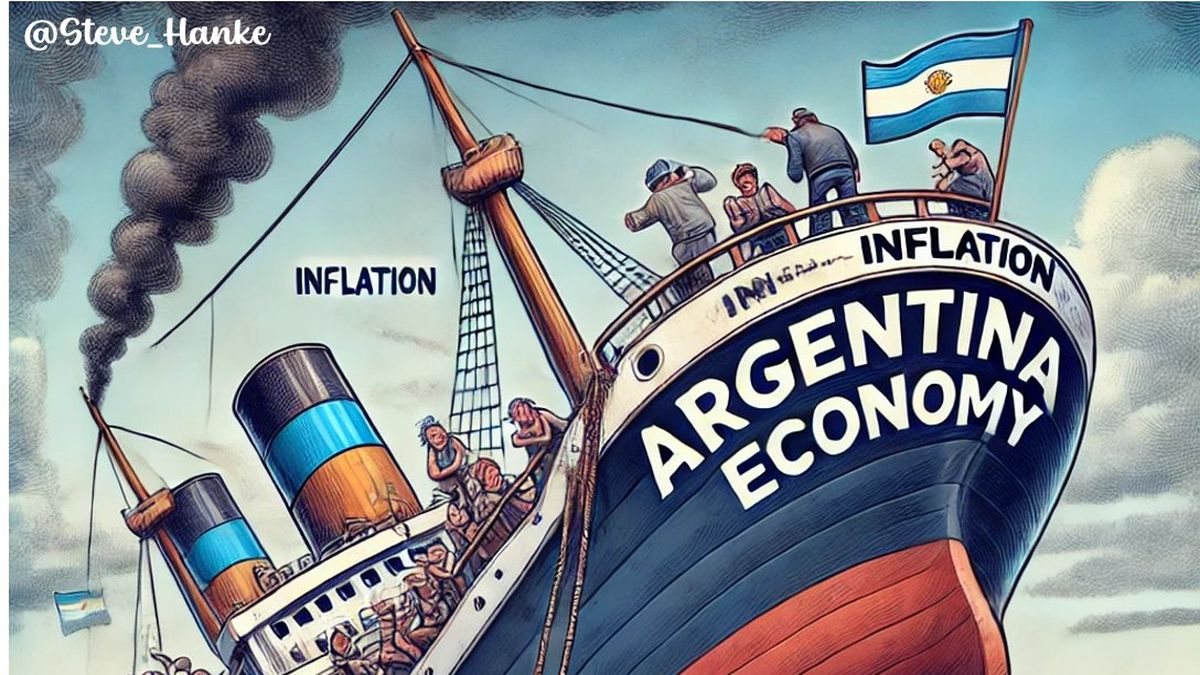The recession is among us. The economy does not show signs of recovery since April, the decrease in consumption and production have already moved to employment. The suspensions multiply and conflict grows. According to official data, last June was the month with more dismissals in the last nine years. The deterioration seems not to find a floor: the Argentine Industrial Union already advanced that the situation worsened in July and the banks alert for the rejected checks. The dollar, to shoot the roof of the band, threatens to give a new blow to the purchasing power.
Since April that the economy does not show a rebound against the previous month. And, in that case, he had done it against a very bad March, which under the expectation of a modification in the exchange regime had deteriorated 1.8% compared to February. At the end of 2025, the Government will celebrate growth in the activity, Maybe 3%are around, but the truth is that It will be nothing more than a statistical drag effect.
In practice, Sales, production and access to credit are paralyzed. The agents of the real economy know it. In recent days, there were claims from the Argentine Chamber of Construction, of the Federation of Industries of Santa Fe, the Mediterranean Foundation and even questions appear, even under the low, on the part of the financial sector.
Last week this media said that noise in the payment chains began. Especially in those sectors that have longer chains. In dialogue with the Podcast factory, the president of Banco Macro, Jorge Brito said that between June and July the number of rejected checks doubled and that this indicator continued to grow during August. He considered it an alarm signal and placed the indicator in the yellow color of the traffic light.
Crisis in employment
The crisis that produced in the production and demand of the monetary squeech, is already felt in employment. According to the official data issued by the Ministry of Labor in the last week, the incidence of layoffs increased in June With respect to the previous month, it also rose in interannual terms and reached its highest point in the last nine years.
The data that comes with a certain lag, seems to be old. In the last week he closed a porcelain factory in Pilar, another of motorcycles in Campana, there were layoffs in the company Láctea La Suipachense, also also Tesses are anticipated in tire plants and various conflicts were aggravated in the metallurgical and petrochemical sector.
In dialogue with Scopethe researcher at the Institute of Studies and Training of the CTA, Luis Campos, remarked that in June they fell “almost all sectors” and “Everything indicates that in the third quarter this dynamic could have deepened with a new deterioration in the formal labor market. ”
In July, Almost 25% of the companies cut their staff, according to the latest report of the Argentine Industrial Union (UIA). It is the highest brand in the entire series. Campos explains that the destruction of formal employment is partially compensated with the process, so unemployment figures do not grow. The deterioration in the conditions is remarkable, in the driving platforms the supply grows, the demand falls and the rates do not increase a year ago. An equation that closes less and less.
Photo Industrial Center
In July the industry fell 2.3% and construction 1.8%.
The dollar to the roof of the band and the end of the honeymoon
The dollar approaches the roof of the band and threatens to blend, once again, the purchasing power of wages. On Friday, sales orders of about US $ 300 million appeared in the orbit of $ 1,472. In the market they speculate that it was the Central Bank (BCRA) that, more than a month after the October legislative elections, already preheats for the intervention, which implies getting rid of mostly “rented” reserves to the International Monetary Fund (IMF).
The descending slide of activity and employment calls in question not only the performance of the October face ruling, but also the thesis that the adjustment has broad popular support. Something that the IMF used as an argument to continue increasing exposure to Argentine risk. The hard defeat in the province of Buenos Aires is a first alarm signal.
For Luis Campos, this plan only closed with recession and fall in formal employment, and precisely the question was if the government was going to manage to sustain social legitimation to carry it forward. For the CTA specialist, it is difficult for the formal labor market to rise in the short term: “being excessively optimistic, it could be maintained at the current levels, but Everything will depend on the new economic program, because it seems quite clear that the current one will not continue”, He concluded.
Source: Ambito




